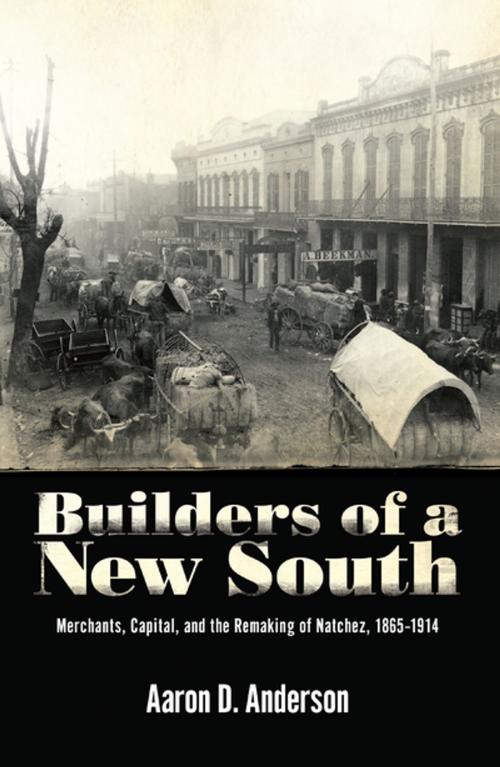Builders of a New South
Merchants, Capital, and the Remaking of Natchez, 1865–1914
Business & Finance, Economics, Economic History, Nonfiction, Social & Cultural Studies, Social Science, Cultural Studies, African-American Studies, History, Americas, United States| Author: | Aaron D. Anderson | ISBN: | 9781628467727 |
| Publisher: | University Press of Mississippi | Publication: | January 23, 2013 |
| Imprint: | University Press of Mississippi | Language: | English |
| Author: | Aaron D. Anderson |
| ISBN: | 9781628467727 |
| Publisher: | University Press of Mississippi |
| Publication: | January 23, 2013 |
| Imprint: | University Press of Mississippi |
| Language: | English |
Builders of a New South describes how, between 1865 and 1914, ten Natchez mercantile families emerged as leading purveyors in the wholesale plantation supply and cotton handling business, and soon became a dominant force in the social and economic Reconstruction of the Natchez District. They were able to take advantage of postwar conditions in Natchez to gain mercantile prominence by supplying planters and black sharecroppers in the plantation supply and cotton buying business. They parlayed this initial success into cotton plantation ownership and became important local businessmen in Natchez, participating in many civic improvements and politics that shaped the district into the twentieth century.
This book digs deep in countless records (including census, tax, property, and probate, as well as thousands of chattel mortgage contracts) to explore how these traders functioned as entrepreneurs in the aftermath of the Civil War, examining closely their role as furnishing merchants and land speculators, as well as their relations with the area's planters and freed black population. Their use of favorable laws protecting them as creditors, along with a solid community base that was civic-minded and culturally intact, greatly assisted them in their success. These families prospered partly because of their good business practices, and partly because local whites and blacks embraced them as useful agents in the emerging new marketplace. The situation created by the aftermath of the war and emancipation provided an ideal circumstance for the merchant families, and in the end, they played a key role in the district's economic survival and were the prime modernizers of Natchez.
Builders of a New South describes how, between 1865 and 1914, ten Natchez mercantile families emerged as leading purveyors in the wholesale plantation supply and cotton handling business, and soon became a dominant force in the social and economic Reconstruction of the Natchez District. They were able to take advantage of postwar conditions in Natchez to gain mercantile prominence by supplying planters and black sharecroppers in the plantation supply and cotton buying business. They parlayed this initial success into cotton plantation ownership and became important local businessmen in Natchez, participating in many civic improvements and politics that shaped the district into the twentieth century.
This book digs deep in countless records (including census, tax, property, and probate, as well as thousands of chattel mortgage contracts) to explore how these traders functioned as entrepreneurs in the aftermath of the Civil War, examining closely their role as furnishing merchants and land speculators, as well as their relations with the area's planters and freed black population. Their use of favorable laws protecting them as creditors, along with a solid community base that was civic-minded and culturally intact, greatly assisted them in their success. These families prospered partly because of their good business practices, and partly because local whites and blacks embraced them as useful agents in the emerging new marketplace. The situation created by the aftermath of the war and emancipation provided an ideal circumstance for the merchant families, and in the end, they played a key role in the district's economic survival and were the prime modernizers of Natchez.















